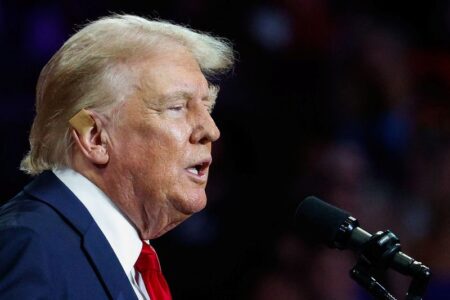Investing.com – Donald Trump has made bold claims about favoring a weaker dollar, but the former president’s core policies on tariffs, immigration and taxes are expected to do the exact opposite.
“Former US President Donald Trump expressed his desire to weaken the US dollar, but his underlying policies (on immigration, tariffs and taxes) point to a strong US dollar,” Macquarie said in a note on Monday.
Trump’s tariffs, industrial policies, immigration policies and tax policies are expected to lead to inflation, raising real interest rates and the dollar, Macquarie adds.
But dollar pessimists often dismiss the idea that Trump’s policies are good for the dollar. They point out that a potential strengthening of the dollar would force Trump to adopt more aggressive policies that would hurt the dollar even more.
There are several policies Trump could pursue to directly weaken the dollar — including pressuring the Federal Reserve to cut interest rates, instructing the Treasury to sell dollars from reserves, and imposing restrictions on capital investment into the United States — but none of these strategies will work. Trump has said he will not remove Jerome Powell from his position as Fed chairman, and that he “cannot simply instruct the Treasury (and its Exchange Stabilization Fund) to sell the U.S. dollar,” Macquarie added.
But there may be one political path to weakening the dollar: offering trade concessions to countries, especially emerging market countries allied with the United States, that are willing to revalue their currencies against the dollar.
But that would come at the expense of Trump’s pro-tariff agenda, Macquarie says. Such an approach would “lead to a tiered system of trading partners and lower tariffs, something Trump has not yet endorsed as a possibility.”
“This is the only policy path under the Trump administration that could weaken the US dollar, but it requires the abolition of the ‘higher tariffs’ framework proposed by Trump,” Macquarie added.
In the most likely scenario, Macquarie says Trump is likely to “accept the stronger US dollar that his core policies may result from,” unless the former president is willing to change his core policies “more sensibly, toward a policy of lowering tariffs on countries that revalue their currencies.”
